Leh: The tensions simmering between India and China along the Line of Actual Control (LAC) in Ladakh have reminded Tibetan refugees in the region of the still-fresh wounds of Chinese occupation.
Just 5 km outside the capital city Leh, Choglamsar — a Tibetan refugee settlement — houses 40 families who were forced to flee after life under Chinese occupation became untenable.
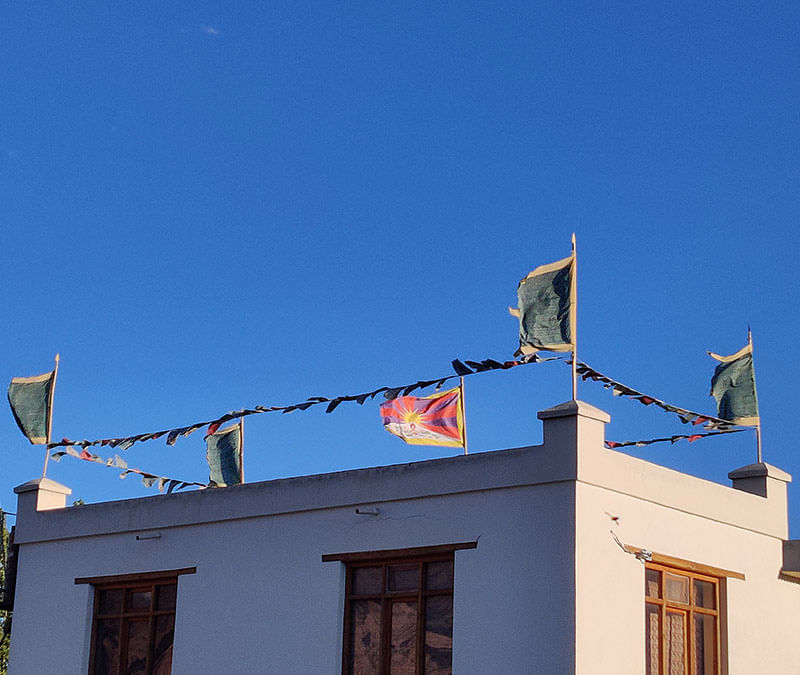
Situated on the banks of the Indus river, the residents of this settlement have differing opinions on the present conflict.
While some fear that China will once again force them to flee, others hope that if India manages to put its foot down, they could return to Tibet after living in exile for years.
Tibet, a high altitude plateau between India and China, has been a contentious issue for the two South Asian neighbours. After Chinese leader Mao Zedong ordered the People’s Liberation Army (PLA) to march into Tibet in 1950, China not only banned Tibet’s national flag and indigenous identity but also created an atmosphere of unrest and fear.
Any support to the Dalai Lama — the spiritual leader of Tibet — was also banned. The refugees in Ladakh recalled how they had fled their homes in search of peace and safety.
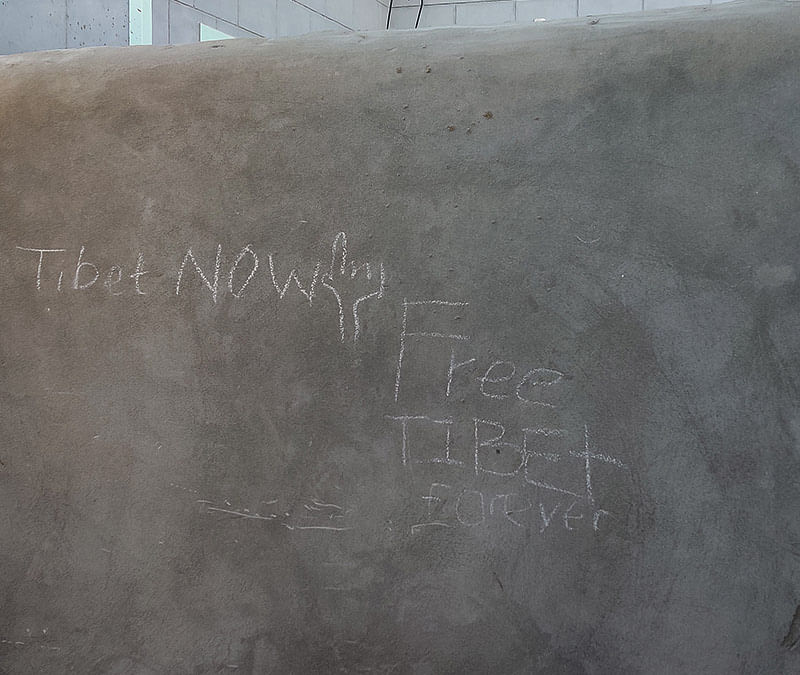
Seventy three-year-old Tsering Lhamo was only 10 years old when she crossed over to Ladakh from her village in Rawang.
“I don’t really remember what the journey was like because I was very young. We took our sheep and goats and grazed them along the mountain roads to get here. We had no option because we were scared that we will be imprisoned,” she said.
The present conflict with China has only opened up those old wounds. “China is very powerful. The uncertainty now feels similar to what it was like in my village, so many years ago. But it’s unlikely that we will ever be able to go back to our village again,” she added.
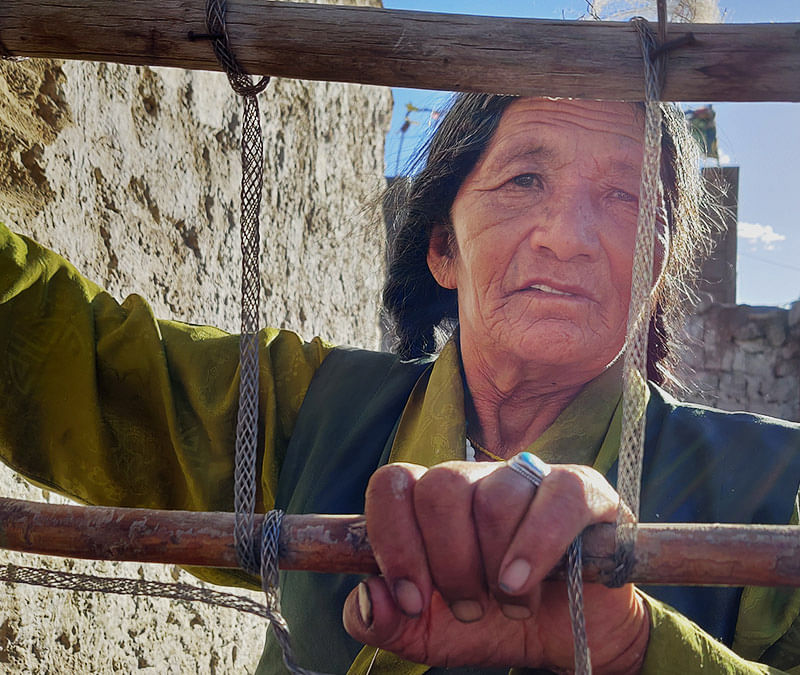
Several of these refugees, now elders of the settlement, congregate at the Choglamsar Tehsil square every evening.
Tsetan Paljor, an 88-year-old farmer, who held his prayer wheel in his hands, said he crossed over with 19 other families. “It took us 26 days to cross over from our village, called Changba, with all our cattle,” he said.
Several of these refugees recall being bullied by the Chinese about where they could graze their herd. “They would tell us every day where to go, where to not go. When a family friend got imprisoned, it was the last straw for us. We packed up our things and decided to leave,” he said.
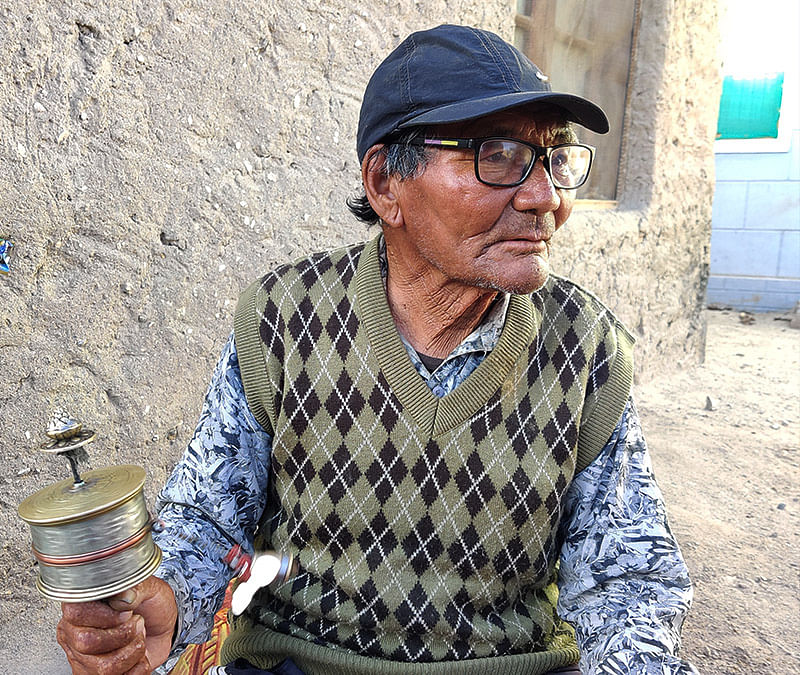
Paljor, who owns a farm now, is hopeful that the present conflict may allow him to return to his village. “If India puts its foot down now, we may be able to return to Tibet,” he said.
Sitting across from Paljor, was his friend Dhundup. “I was very young so I don’t really remember anything. All I remember was we left with three other families. Now this has become our home,” she said looking around.
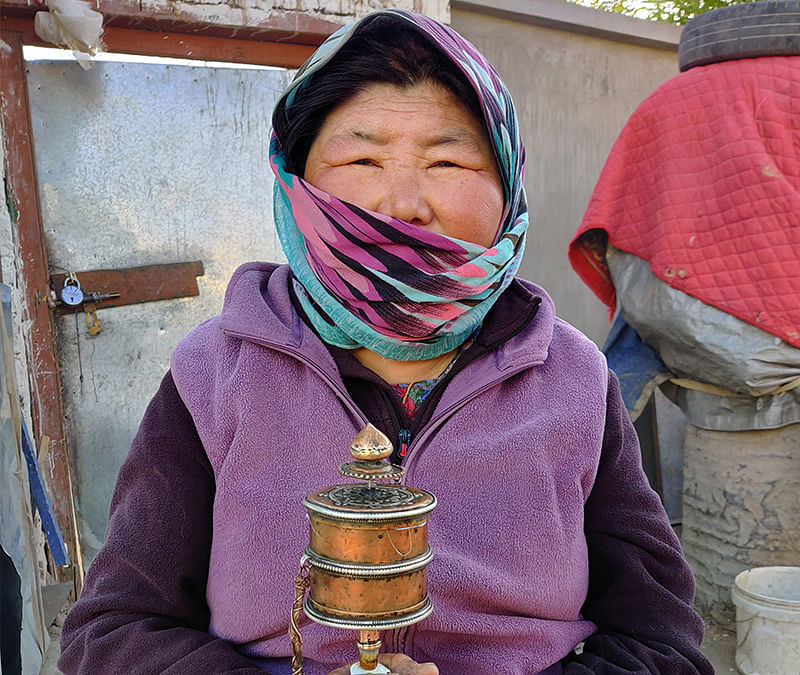
Also read: India, China corps commanders to meet in Ladakh tomorrow but major breakthrough unlikely
New generations feel the pain too
Choglamser is also home to second and third generation refugees, who did not witness China’s atrocities first-hand but are still deeply affected by it.
Karma Khetup teaches Buddhist studies at the local school in the tehsil. Both his and his wife’s parents were refugees who had crossed over from Tibet. “My parents escaped to India when the Dalai Lama came to India. My father told us stories about how Chinese would hold meetings every day in an attempt to brainwash the locals against the Dalai Lama,” he said.
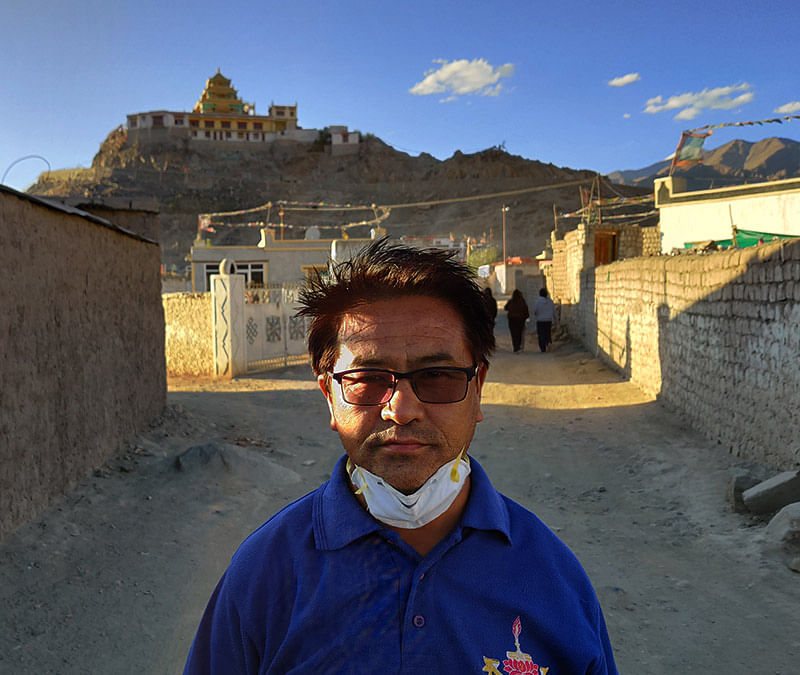
Khetup’s daughter, Norzom, also lives in the settlement. However, she has spent little time here.
A student at Jawaharlal Nehru University in Delhi, this is the longest she has stayed in Choglamsar. “I went to school in Dehradun, and then college in Delhi and now I am studying in JNU,” she said.
Despite being born here, Khetup says the sense of being outsiders continues to haunt several of them. Khetup has lived all his life in Ladakh, but considers himself a refugee.
“I am a refugee, but my children are Indians,” he said.
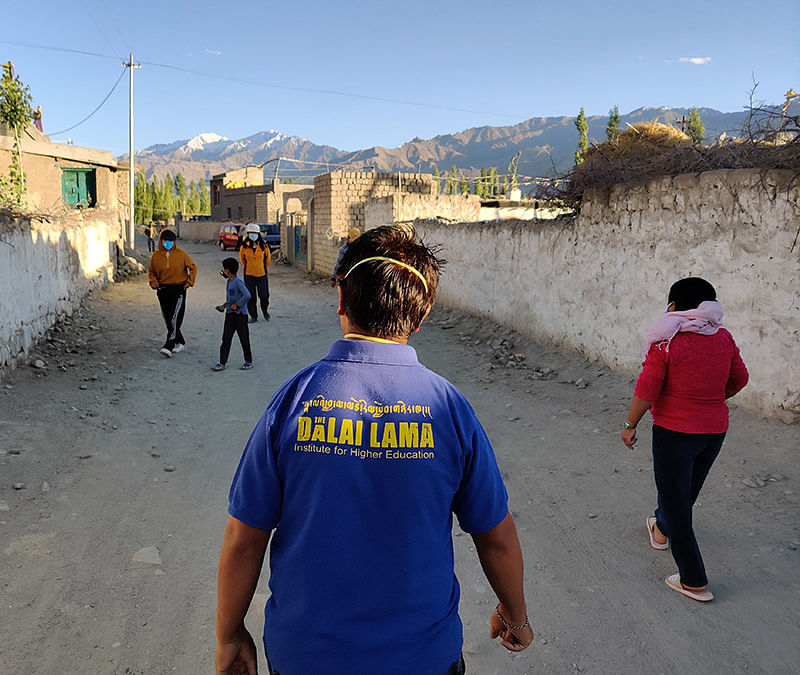
Also read: Locusts swarm over UP district, villagers rush out banging pots and pans to protect fields


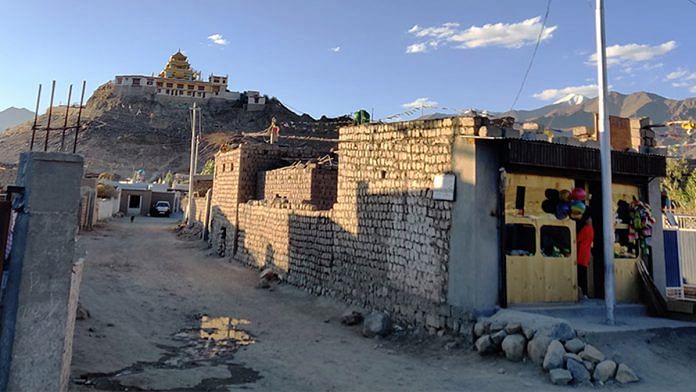

Tibetans have passed on the memory of their native land to their next generations. The older people haven’t failed the next generations. Once on a visit to the Tibetan Refugee camp in Bylakumme, Karnataka, I went to a shop selling knick knacks and chatted up with the young man on duty at the counter. Within couple of minutes, he proudly spoke of his native land Tibet, though neither he nor his parents would have seen Tibet. We Indians have a lot to learn from Tibetans. Never forget your history. We have forgotten oppressive foreign rule over India, especially the British oppression, the horrors of partition. Our universities are brainwashing our youngsters. We are living as though India has no history.